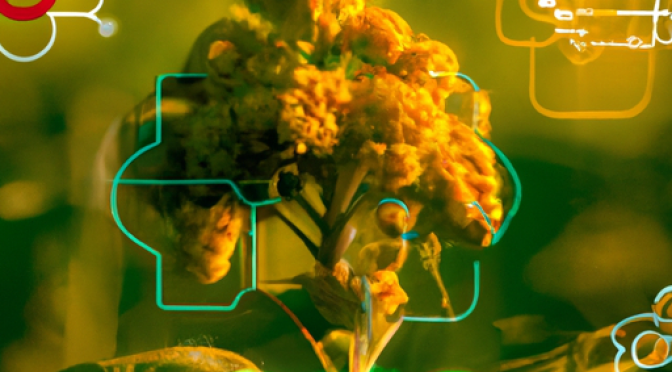Introduction
In recent years, the field of genetic engineering has witnessed significant advancements, leading to the creation of genetically modified organisms (GMOs). These organisms are the result of crossbreeding between different species, often involving the introduction of foreign genes. However, the potential consequences of such crossbreeding on natural species remain a topic of concern and debate.
The Role of AI in Predicting Crossbreeding Outcomes
Artificial intelligence (AI) has emerged as a powerful tool in various scientific domains, and its potential application in predicting crossbreeding outcomes between GMOs and natural species is an area of active research. By leveraging AI algorithms and machine learning techniques, scientists aim to develop predictive models that can assess the potential risks and benefits associated with crossbreeding.
Genetic Data Analysis
One way AI can contribute to predicting crossbreeding outcomes is through genetic data analysis. By analyzing the genetic makeup of both GMOs and natural species, AI algorithms can identify potential genetic interactions and predict the likelihood of successful crossbreeding. This analysis can help researchers understand the possible consequences of introducing GMOs into natural populations.
Environmental Modeling
Another aspect where AI can assist is in environmental modeling. By incorporating data on environmental factors such as temperature, humidity, and soil composition, AI algorithms can simulate the conditions under which crossbreeding occurs. This modeling can provide insights into how GMOs may interact with natural species in different environments, aiding in the prediction of potential outcomes.
Risk Assessment
AI can also play a crucial role in risk assessment. By analyzing historical data on crossbreeding experiments and their outcomes, AI algorithms can identify patterns and correlations that may indicate potential risks or benefits. This information can help scientists make informed decisions regarding the introduction of GMOs into natural ecosystems.
Challenges and Limitations
While AI shows promise in predicting crossbreeding outcomes, there are several challenges and limitations that need to be addressed. Firstly, the complexity of genetic interactions and environmental factors makes accurate predictions challenging. Additionally, the lack of comprehensive data on crossbreeding experiments hinders the development of robust AI models. Furthermore, ethical considerations surrounding GMOs and their potential impact on biodiversity must be carefully considered.
Conclusion
AI has the potential to revolutionize the field of predicting crossbreeding outcomes between GMOs and natural species. By leveraging genetic data analysis, environmental modeling, and risk assessment, AI algorithms can provide valuable insights into the potential consequences of crossbreeding. However, further research and collaboration between scientists, policymakers, and ethicists are necessary to ensure responsible and informed decision-making in this domain.

